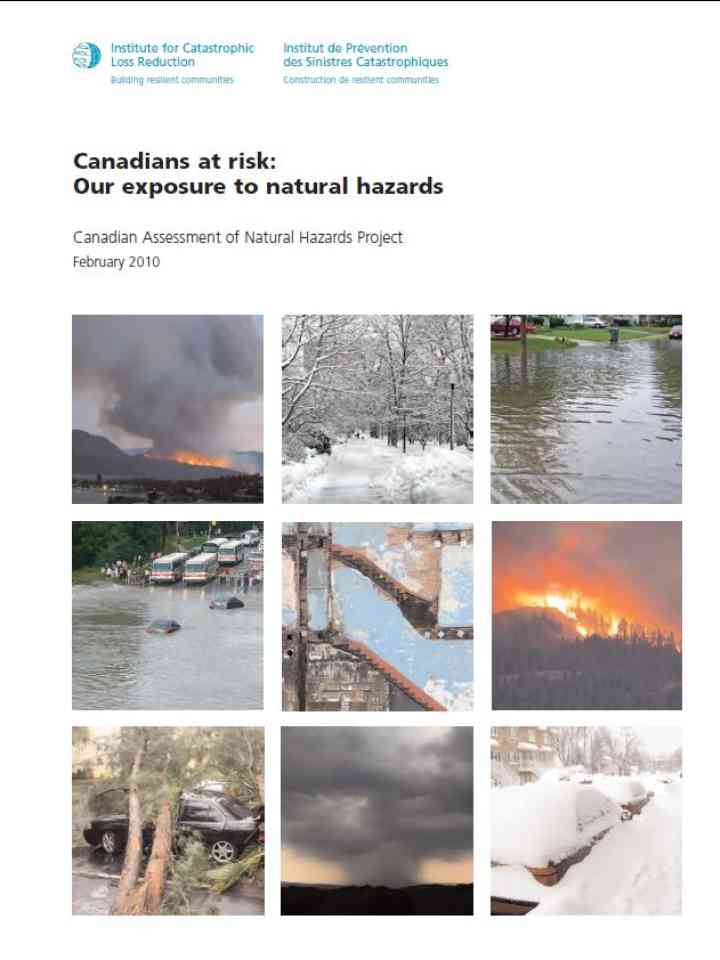Canadians at risk: our exposure to natural hazards
Canadian assessment of natural hazards project, ICLR research paper series – number 48:
This document aims to inform people about the risks they face, some of the ways to adapt to them and actions that can be taken to reduce vulnerability to them. It is intended for Canadians—political leaders and bureaucrats, business leaders and the public—to better understand the nature of the risks they face and to prepare for disasters.
The document addresses: (i) general issues and the concepts of vulnerability and ethics; (ii) weather hazards, i.e. climate change, cold snaps, drought, fire, flood, fog, hail storms, heat waves, hurricane, storm surge, thunderstorms, tornadoes, and winter storms; (iii) geophysical hazards, i.e. earthquakes, geomagnetic storms, landslides, snow avalanche, tsunami, and volcanoes; and (iv) coping strategies, such as risk assessment, prediction, adapting, emergency response, remote sensing, insurance, Federal Disaster Financial Assistance Arrangements (DFAA), and mitigation.
Explore further
